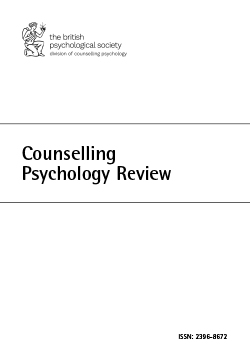Article
Appreciating gratitude: Can gratitude be used as a psychological intervention to improve individual well-being?
Nelson, Catherine
Get access to this article:
- 48 hours You will have online access to this content for 48 hours. You should download the PDF for perpetual usage. Add to cart (£2.00)
Or get access to the whole issue:
- 48 hours You will have online access to this content for 48 hours. You should download the PDF for perpetual usage. Add to cart (£4.50)
Abstract
Although extolled as a fundamental virtue in all the world’s major religions, and experienced by people in most cultures, gratitude has until recently received little attention within the psychological literature, and has been omitted from many major works on emotion.
But recently the nature and importance of gratitude has been reconsidered. Alongside the development of positive psychology, an increasing range of new empirical research, together with a re-evaluation of older studies, has indicated that gratitude can improve well-being in two ways: directly, as a causal agent of wellbeing; and indirectly, as a means of buffering against negative states and emotions.
Greater understanding of the power of gratitude as a psychological intervention has wide-ranging significance for counselling psychology. Even at such an early stage, gratitude research can both inform individual strategies with clients and contribute to the development of more sustained programmes of intervention. Gratitude research can amplify thinking within current theoretical models, including both cognitive behavioural and person-centred approaches. Finally, gratitude research can provide counselling psychology with ideas for interventions with a range of client groups, from those experiencing depression, bereavement or substance abuse, to individuals who are not experiencing clinical issues but are seeking simply to enhance their state of well-being.
In assessing the therapeutic use of gratitude to increase well-being, this review covers three main areas. Firstly, it introduces conceptualisations of gratitude and the place of gratitude within cognitive-emotional and biosocial theories. Secondly, it evaluates evidence for gratitude’s impact on individual well-being, both directly as a causal agent and indirectly as a buffer against negative states. Working within an evidencebased approach, this analysis focuses on empirical studies, although making use of psychoanalytical studies which may suggest future empirical research opportunities. Finally, this review identifies four main conclusions from existing gratitude research, considering implications both for theories of gratitude and for the practice of counselling psychology, as well as future research directions.

